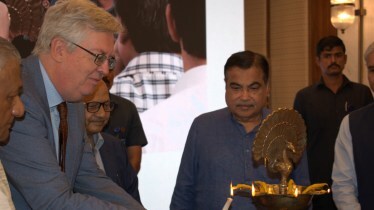The introduction of Bharat NCAP is a significant milestone for the Indian automotive industry. Until a few years ago, Indian cars were generally considered among less safer cars around the world. This started to change when Indian carmakers like Tata Motors and Mahindra started sending their models to Global NCAP for safety ratings. Since then, both automakers have gained a solid reputation of manufacturing safe cars.
Bharat NCAP is the result of a persistent struggle of several people along with the Government of India which has advocated for safer cars to be manufactured in India. At the forefront of this struggle is David Ward, President of Zero Foundation and Global NCAP, whose expertise in awarding safety ratings to cars across the globe, have helped the government immensely in implementing these India specific protocols.
Now with the launch of Bharat NCAP, more auto OEMs based out of India have access to safety ratings. The average cost of sending a car to Global NCAP is around Rs 2.50 crore. This will come down to Rs 60 lakh with the launch of Bharat NCAP.
Interaction with David Ward
Financial Express Online got a chance to get a quick reaction from Ward at the launch of Bharat NCAP. While Bharat NCAP is based on the latest standards set by Global NCAP, there could be certain aberrations from the global autonomous body. When asked about the same, Ward said, “It is possible there could be small modifications in the protocol. But as I explained, it’s entirely understandable that each NCAP adapts to their home conditions.”
He added, “If you look at the different protocols, there are now 10 NCAPs operating around the world, and they all have slightly different protocols. Sometimes industry says they want one harmonised programme– everything the same, but actually, it’s quite good that NCAPs adapt to the local conditions. And even at another point is that it creates a kind of dynamism of its own.”
Ward also hinted at competition between different NCAPs. He said, “There’s even maybe a little bit of competition between NCAPs that’s all healthy, it generates innovation. So I mean, it’s early days. But the reality is that you’ve now got a permanent, officially backed anyhow, you’re joining the the club of all NCAPs worldwide.”
Ward admitted that every protocol undergoes changes after a while. Ward said, “India’s growing role in the automotive industry within the G20 is so important. So you know, let’s give it time to evolve. As I say, each protocol around the world usually is updated every four or five years. So we’ll see how it all evolves. But we’re very, very happy that the starting point is building on the success of a project we’ve run for the last 10 years”.
